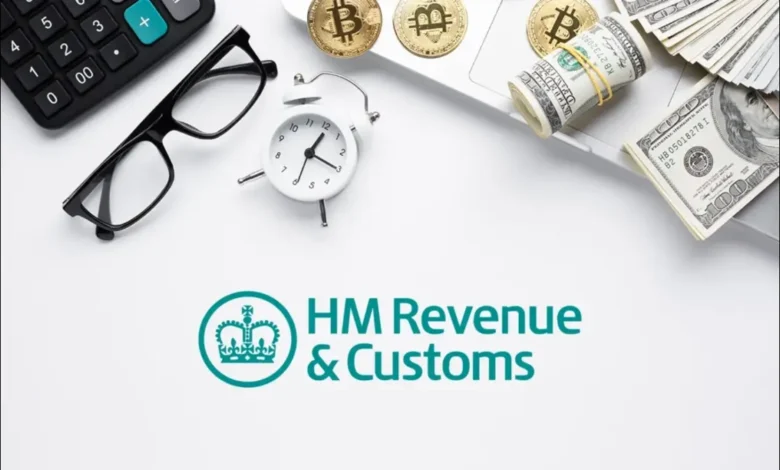HMRC Tax Investigations: Everything You Need to Know

HMRC Tax Investigations If you’re running a business, freelancing, or even just filing your annual tax return in the UK, chances are you’ve heard about HMRC tax investigations. But what are they really about? Are they something you should lose sleep over, or just a routine check? Well, the answer depends on how transparent and accurate your financial reporting is. HMRC tax investigations can range from simple inquiries to full-blown reviews of your accounts. Understanding what triggers them, how to deal with them, and how to avoid them in the future is key to staying on the right side of HMRC. This article breaks it all down for you in a way that’s easy to digest but packed with expert insights.
What is an HMRC Tax Investigation?
An HMRC tax investigation is essentially a review or audit of your financial and tax records. HMRC conducts these investigations to ensure that individuals and businesses are paying the correct amount of tax. They’re not necessarily accusing you of anything, but they do want to double-check your numbers. Think of it like a spot-check.
These investigations can be random, but they’re often triggered by discrepancies in your tax returns, inconsistencies in income reporting, or even tips from third parties. HMRC uses a highly sophisticated system called Connect, which cross-references data from banks, companies, social media, and more to flag anomalies. So yes, they have eyes everywhere.
It can be a daunting process if you’re not prepared. That’s why it’s crucial to maintain accurate and transparent financial records. The smoother your documentation, the easier it is to respond to HMRC queries confidently.
Types of HMRC Tax Investigations
Not all tax investigations are created equal. HMRC typically categorizes them into three main types, each with a different level of scrutiny and urgency. Knowing the type of investigation you’re facing can help you prepare appropriately.
The first type is a random check. Yes, HMRC sometimes just picks you out of the crowd. These checks are exactly what they sound like: random. There’s no specific trigger other than the luck of the draw. Even if your books are in tip-top shape, you could still be selected.
The second type is an aspect inquiry. This happens when HMRC finds something specific that doesn’t add up in your return, like an unusually high expense claim or a missing income source. They’re not auditing your entire return, just that one questionable part. Still, it’s important to handle it seriously.
The third and most serious type is a full inquiry. This is when HMRC decides to go over your entire financial life with a fine-tooth comb. They’ll want to see bank statements, invoices, receipts, and anything else they can get their hands on. It usually means they suspect something more serious.
Common Triggers for HMRC Tax Investigations
Let’s talk about what can set off alarm bells at HMRC. While some investigations are random, most are triggered by specific red flags. Understanding these can help you avoid unnecessary trouble.
One common trigger is inconsistent income reporting. If your lifestyle doesn’t match the income you’ve reported, HMRC might take a closer look. Driving a brand-new luxury car while claiming low earnings, for example, might raise eyebrows.
Another red flag is claiming excessive or unusual expenses. If your deductions look out of the ordinary compared to others in your industry, HMRC may want an explanation. Always make sure your claims are legitimate and well-documented.
Late filing or payment of taxes can also attract attention. Regular delays suggest a lack of control over your finances, something HMRC doesn’t take lightly. They might interpret it as a sign of deeper issues worth investigating.
How to Know if You’re Being Investigated
Usually, you’ll get a letter from HMRC informing you about the investigation. It won’t be a cryptic message—it will clearly state that they are opening an inquiry and which part of your tax return is under review. You might also get a phone call in some cases.
This letter will also detail what they need from you. That could include documents like bank statements, receipts, invoices, contracts, or even email correspondence. The more complete your records, the better position you’ll be in to handle the situation efficiently.
The timeline for an investigation can vary. Some are wrapped up in weeks, while others can stretch over months. It often depends on the complexity of the issues at hand and how cooperative you are in providing the required information.
What Happens During an HMRC Tax Investigation
When you’re under investigation, you’ll typically work with an HMRC compliance officer. They will ask for access to your financial records and may even want to meet in person or visit your premises. It can feel invasive, but staying calm and cooperative is essential.
You’ll be asked to provide evidence supporting your income and expense claims. This is why keeping detailed and accurate records is not just good practice—it’s essential. If you’re missing documents or things don’t add up, it can lead to penalties or even more serious consequences.
Throughout the investigation, HMRC may come back with follow-up questions or requests for more documents. They’re not doing this to harass you—it’s part of their due diligence. But delays in your responses can make things worse.
Your Rights During a Tax Investigation
It’s important to know that you have rights when dealing with HMRC tax investigations. You’re not at their mercy, even if it feels like it sometimes. First off, you have the right to be represented. You can hire an accountant, a tax adviser, or even a lawyer to act on your behalf.
You also have the right to appeal any decisions made by HMRC if you disagree with their findings. This includes disputing penalties or the amount of tax they say you owe. The appeal process can be a bit complex, but it’s there to ensure fairness.
Lastly, you have the right to be treated respectfully and professionally. If you feel you’re being mistreated, there are formal complaint procedures available. HMRC is a public body and must adhere to standards of conduct like any other governmental organization.
How to Handle an HMRC Tax Investigation
The first step is not to panic. Easier said than done, but staying calm can help you think clearly and make rational decisions. Start by reviewing the HMRC letter carefully to understand what exactly they’re looking into.
Next, gather all the relevant documents. This includes bank statements, invoices, receipts, payroll records, and anything else that can support your claims. If you have a bookkeeper or accountant, get them involved immediately.
Communication is key. Respond to HMRC requests promptly and clearly. Avoid providing incomplete information or dodging questions. The more cooperative and transparent you are, the smoother the process tends to be.
Penalties and Consequences of HMRC Investigations
If HMRC finds that you’ve underpaid your taxes, you could face penalties. These can range from interest charges to substantial fines. In extreme cases, where there’s evidence of fraud, it could even lead to criminal prosecution.
Penalties are often based on the nature of the error. Honest mistakes usually result in lighter penalties, while deliberate attempts to evade tax carry much harsher consequences. HMRC takes intent seriously, so being honest and forthcoming can work in your favor.
Aside from the financial impact, there’s also the stress and potential reputational damage. For businesses, being under investigation can affect client relationships and public perception. That’s why it’s critical to handle the matter swiftly and professionally.
How to Avoid an HMRC Tax Investigation
Prevention is always better than cure. One of the best ways to avoid HMRC tax investigations is by keeping accurate and up-to-date financial records. Invest in a good accounting system or software to help with this.
Another tip is to file your tax returns on time and make sure they’re complete. Double-check numbers, provide all necessary information, and keep backup documentation. If you’re unsure about something, consult a professional. A little expert advice can go a long way.
Be mindful of the claims you make. If something looks too good to be true—like extremely high deductions—it could attract attention. Only claim what you can substantiate. Transparency and honesty are your best defenses.
The Role of Accountants in Tax Investigations
Having a good accountant is like having a financial bodyguard. They can help you prepare for HMRC tax investigations by ensuring your returns are accurate and compliant. If you do get investigated, they can represent you and communicate with HMRC on your behalf.
Accountants also understand the tax laws inside out. They know what HMRC looks for and can help you avoid common pitfalls. Their guidance can be invaluable, especially in complex situations involving multiple income sources or international transactions.
If you don’t already have an accountant, now HMRC Tax Investigations be a good time to consider hiring one. It’s an investment that can save you a lot of time, stress, and money down the line.

What to Do After an Investigation
Once the dust settles, take the opportunity to review your financial practices. Even if the investigation didn’t uncover any serious issues, it’s a good wake-up call. Look at what could be improved and make the necessary changes.
You might also want to schedule regular reviews with your accountant or tax adviser. Periodic check-ins can help you stay compliant and catch any issues before they become serious. Consider it part of your financial health routine.
Take time to understand what triggered the investigation in the first place. Was it a specific error, a red flag, or just random? Knowing this can help you avoid future issues. HMRC doesn’t usually investigate the same taxpayer repeatedly without cause, but staying vigilant is wise.
Quick Bio Table: HMRC Tax Investigations at a Glance
TopicDescription
Purpose Ensure accurate tax reporting and payment
Types Random, Aspect Enquiry, Full Enquiry
Triggers Inconsistencies, excessive claims, late filings
Rights Representation, appeals, fair treatment
Consequences Penalties, interest, reputational damage
Prevention Good records, timely filings, professional help
Frequently Asked Questions
What does HMRC look for in a tax investigation?
HMRC looks for inaccuracies, omissions, or evidence of underpaid taxes. They want to ensure you’re reporting all income and only claiming legitimate deductions.
How long does an HMRC investigation take?
It can vary widely. Some investigations are completed in a few weeks, while others can last months, depending on the complexity of your financial affairs.
Can I ignore a letter from HMRC?
No. Ignoring a letter from HMRC can escalate the situation and lead to more serious consequences. Always respond promptly and consult a professional.
What if HMRC made a mistake?
You can challenge HMRC’s findings. If you believe there’s an error, you have the right to appeal and present evidence to support your case.
Does HMRC investigate every one?
No, not everyone is investigated. Most people are not. However, anyone can be investigated if something in their return raises a red flag or even at random.
Is it possible to avoid HMRC tax investigations entirely?
While you can’t eliminate the possibility, you can greatly reduce the risk by being accurate, timely, and transparent with your tax filings.
Should I hire a tax adviser during an investigation?
Yes, hiring a professional can make the process less stressful and more efficient. They can deal with HMRC on your behalf and ensure you meet all requirements.
Can an HMRC investigation affect my business?
Yes. It can cause operational delays, stress, and in some cases, reputational damage. That’s why it’s vital to manage the process professionally and efficiently.
What happens if I can’t provide all the requested documents?
Explain the situation to HMRC. In some cases, they may accept alternative documentation. But lack of proper records can increase penalties, so always aim to keep complete files.
Does HMRC use social media during investigations?
Yes, HMRC can and does use social media to gather information. If your lifestyle posts don’t match your declared income, it might raise a few flags.
This in-depth guide on HMRC tax investigations should give you a solid understanding of what to expect, how to handle it, and how to stay on HMRC’s good side. Whether you’re a business owner, freelancer, or just someone who wants to stay compliant, a bit of knowledge and preparation goes a long way. Keep your records clean, and your filings on time, and don’t be afraid to call in a pro when needed. Your future self will thank you.







